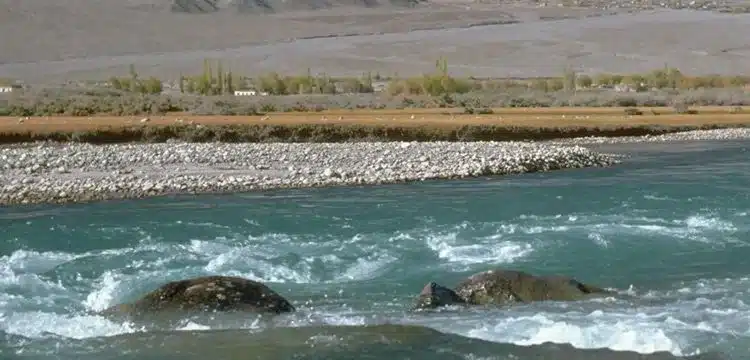[vc_row][vc_column][vc_column_text dp_text_size=”size-4″]
The ‘Living Indus Initiative’ of Pakistan has reached a significant milestone by being recognized as the World Restoration Flagship under the United Nations Decade on Ecosystem Restoration. In a letter to Pakistan’s Minister for Climate Change and Environmental Coordination, Inger Andersen, the Executive Director of the United Nations Environment Programme (UNEP), officially acknowledged this prestigious recognition.
The United Nations praised the initiative for standing out as one of the world’s most promising, ambitious, and inspiring examples of large-scale restoration efforts. The Ministry of Climate Change released an official statement expressing gratitude for the recognition, emphasizing the collective efforts of everyone involved in and supportive of the initiative. The acknowledgment is seen as a major achievement for Pakistan, showcasing its dedication to environmental stewardship and sustainable development on the global stage.
Read more: Punjab Rolls Out Significant Relief for Drivers Without Licenses
The ‘Living Indus Initiative’ distinguished itself from over 150 other initiatives and garnered support from more than 70 governments globally. This widespread backing is seen as a positive reflection on Pakistan’s international image, particularly in the context of environmental conservation and sustainability.
The initiative’s focus is on the restoration of vast areas in the Indus River basin, a crucial ecosystem that sustains 90 percent of Pakistan’s population and a significant portion of its economy. The collaborative efforts of the Ministry of Climate Change, provincial authorities, and the UN system have played a pivotal role in achieving this recognition. The initiative employs 25 measures, with an emphasis on nature-based solutions and ecosystem-based adaptation strategies to address the ecological challenges posed by climate change in the fragile basin.
While the achievement has been confirmed, the official announcement of the World Restoration Flagships, including the ‘Living Indus Initiative,’ is scheduled for February 2024 during the sixth United Nations Environment Assembly (UNEA6). The event will be accompanied by a global media campaign and extensive online outreach, engaging millions of individuals, including experts and environmentalists.
In conclusion, the recognition of the ‘Living Indus Initiative’ as the World Restoration Flagship by the United Nations highlights Pakistan’s commitment to ecological restoration and sustainable development. This achievement not only sets the initiative apart on the global stage but also contributes positively to Pakistan’s image in the international community, particularly in the crucial areas of environmental conservation and climate change adaptation.
[/vc_column_text][/vc_column][/vc_row]











